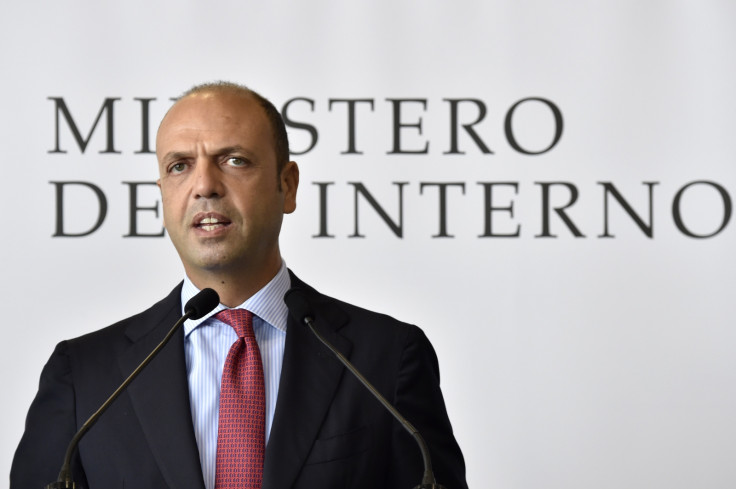Italy Interior Minister Angelino Alfano demands revision of anti-torture law
The senate is expected to pass an anti-torture law to curb police brutality.
Italy's Interior Minister Angelino Alfano announced on 18 July that he has asked for a revision of the country's anti-torture laws to curb police brutality. The Chamber of Representatives is expected to review the law and pass it on 19 July.
Alfano said that changes were needed to "prevent any misunderstanding concerning the legitimate use of force by the police". Men and woman in uniform, "are doing an excellent job, which must not be subject to curbs due to psychological anxiety or operating concerns in complex situations," he said, according to Ansa.

The European Court of Human Rights (ECtHR) has previously condemned Italy's police force following a July 2001 raid on anti-globalisation protesters at the Genoa G8. The authorities raided the Diaz school and violently attacked the demonstrators. One person was killed and numerous others critically injured. Many were then taken to a temporary detention facility in Bolzaneto where they were reportedly tortured before being released. As many as 125 policemen were put on trial but due to the lack of a proper law against torture, and delays, only 12 were sentenced to two to four years in prison.
At the time of the ECtHR ruling in 2015, Franco Vazio, a deputy from Italy's ruling Democratic Party (PD) who was working to introduce a law against torture into the Italian legislature, said in a statement: "The sentence from Strasbourg reminds us that Italy has lacked a specific law against torture for too long and has not respected the principles of international legislation."
On 18 July, Italy's Premier Matteo Renzi also hosted an anti-terror domestic summit on 18 July at Palazzo Chigi, in the wake of the Nice terror attack that resulted in the deaths of 84 people on Bastille Day (14 July). Addressing concerns that Mohamed Lahouaiyej Bouhlel, the man responsible for the massacre in France, had allies in Italy, Alfano said that in the past six months, law enforcement agencies have received 308 possible terror threats, and checked out over 150,000 people and more than 30,000 vehicles. Over 800 suspects have been placed under investigation, 500 arrests were made, and 100 individuals were expelled, including seven Muslim imams who had been preaching violence.
© Copyright IBTimes 2025. All rights reserved.





















